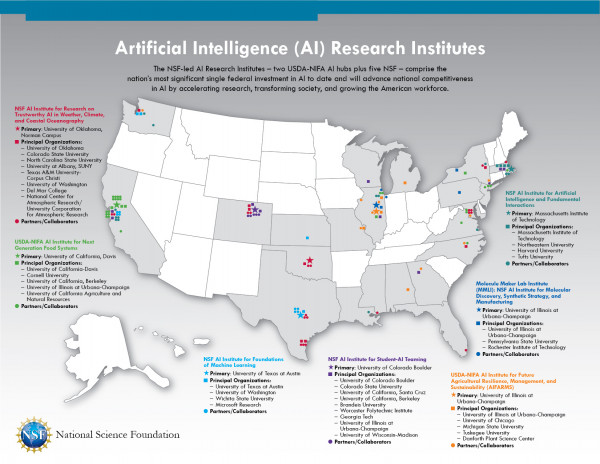UW-Madison researcher collaborates on new NSF-funded national artificial intelligence initiative
WCER’s Puntambekar will focus on using AI for student learning
September 14, 2020 | By Lynn Armitage, WCER Communications

Sadhana Puntambekar, a principal investigator at the Wisconsin Center for Education Research and professor in the University of Wisconsin─Madison School of Education, will collaborate with national researchers on establishing one of five artificial intelligence (AI) institutes and education hubs. A $100 million initiative of the National Science Foundation, the centers are the single most significant federal investment to date in exploring how AI can benefit the United States’ quality of life, economy and international competitiveness.
With an investment of $20 million over five years in each AI institute, the NSF has formed collaborations among researchers from some 30 universities across the country. Puntambekar, the sole representative from UW─Madison, will collaborate with peers from nine universities on the project known as the NSF AI Institute for Student-AI Teaming, spearheaded by the University of Colorado Boulder. This institute will examine how AI can contribute to the future of education and workforce development.
“What is most exciting about this project is that it takes my previous work on distributed scaffolding to new levels in which we will develop paradigms for students, teachers and AI agents, each bringing different strengths to work together and complement each other,” says Puntambekar. She adds that the institute’s vision is to create a classroom in which teachers, students and AI work synergistically for effective teaching and learning.
According to Puntambekar, “AI models will help identify learning and collaboration patterns that would be nearly impossible for teachers to identify on their own, let alone in real time. For instance, using content and semantic analysis, AI could recognize two groups that are developing complementary arguments and suggest they share their work to develop more complete reasoning.” She says that AI can also help alert teachers about when, where and why it may be productive for them to engage with students.

Map of NSF-led AI institutes and education hubs.
In addition to collaborating with UCBoulder, Puntambekar will work closely on this AI initiative with education partners from seven other universities: Colorado State University; the University of California, Santa Cruz; UC Berkeley; Brandeis University; Worcester Polytechnic University; Georgia Institute of Technology; and the University of Illinois at Urbana-Champaign.
This last month has been exceptionally rewarding for the WCER researcher. Puntambekar has received two other NSF grants exceeding a million dollars each to help advance STEM learning in middle school.
“It’s quite unbelievable to land three grants, one after the other,” shares Puntambekar. “All the projects that were funded proposed innovative uses of technology to support and understand students’ learning. And they all build on my prior work on federally funded projects.”


